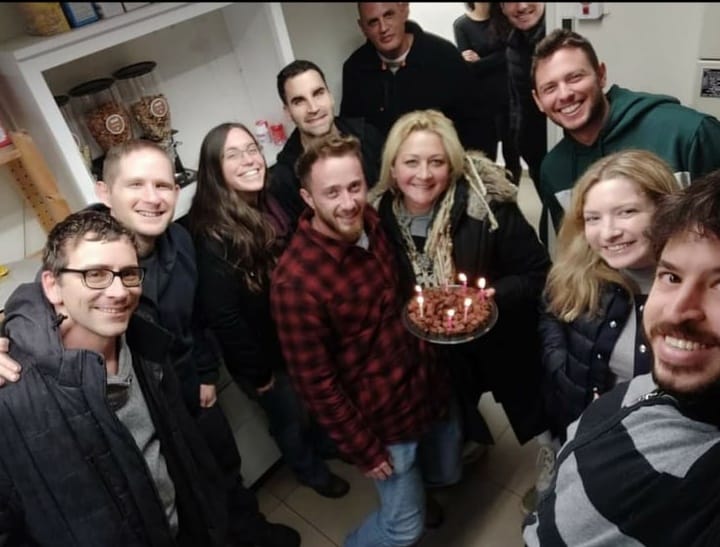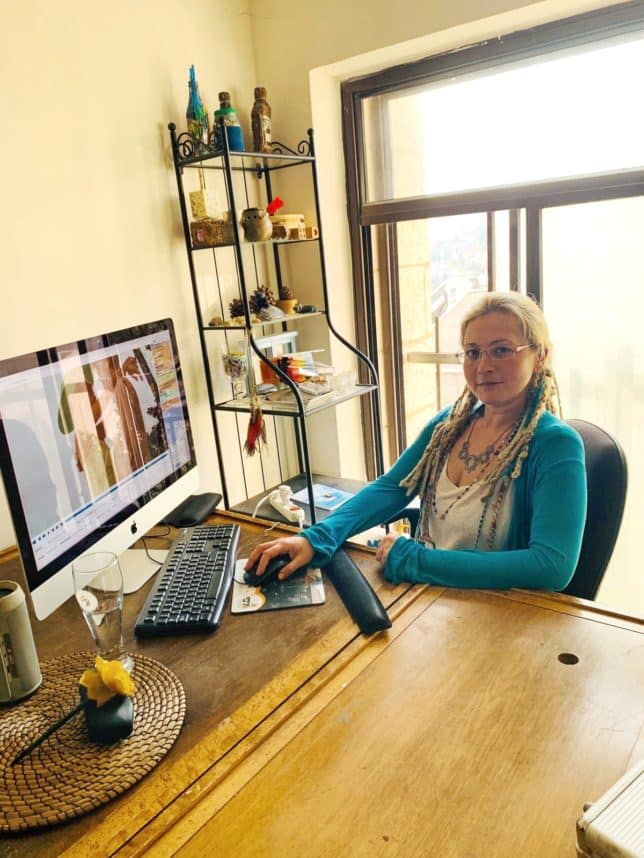
Breeah Berezin-Bahr gushes when talking about her employer, Israeli high-tech company Lightricks, which created the global photo editing software Facetune.
“Lightricks is my new religion,” Berezin-Bahr declared. She credits the Jerusalem-based company with turning her life around when she began working there as a cleaner in 2017.
“Lightricks is my new religion,” Berezin-Bahr declared. She credits the Jerusalem-based company with turning her life around when she began working there as a cleaner in 2017.
After Berezin-Bahr broke her leg and was unable to work for five months, the company kept her on the payroll despite it being the National Insurance Institute’s (NII) responsibility to cover her salary. When she finally received a check from the NII, Lightricks wouldn’t accept her offer to pay them back.
But the real litmus test came when the coronavirus hit the country and Berezin-Bahr, along with nine other members of the cleaning staff, were sent home. As a single mother with no help — financial or otherwise — from her ex, she wondered how she would pay her rent or feed her teenage sons. Working from home obviously wasn’t an option for the cleaning staff, or so she thought. However, days after being sent home, the maintenance manager Nadav (“the best boss in the world”) told her and her colleagues that their job description was about to radically change. Lightricks sent them all the trappings to become work-at-home high-tech employees, including a desk, a swivel chair and “a huge freaking real computer.”
As a single mother with no help — financial or otherwise — from her ex, she wondered how she would pay her rent or feed her teenage sons.
Nadav taught the cleaners basic computer skills. Berezin-Bahr, who married young and doesn’t have a college education, had no idea how to operate a computer. “I lived in Sefad for so many years, I didn’t need it,” she said, laughing. “I came from a world where we thought we don’t have to work and that HaShem would provide and if He didn’t, it was probably because we spoke too much lashon harah that month and not because we didn’t have jobs.”

She has since traded her turban head covering for long blond braids.
Nadav tasked the Lightricks cleaning team with inputting photos of faces for image processing. “Control-alt-shift — all these things were really foreign, “Berezin-Bahr said. “Once you start doing it, it’s kind of cool. It’s an unknown field but learning it has been really eye-opening.”
So what will happen after the virus restrictions end and employees are sent back to work?
“Control-alt-shift — All these things were really foreign. Once you start doing it it’s kind of cool.”
“I would love to do this for the rest of my life and not clean,” she said. “But everyone who works [at Lightricks] has serious resumes and went to universities, so for them to take me on will be a miracle. I’d have to learn a lot more skills.”
For now, Berezin-Bahr is happy that her sons have the chance to be exposed to something else. “My boys are amazing cleaners. Whoever they marry will be very lucky but it’s not the only skill I want to pass onto them,” she said.
Berezin-Bahr pulled out a picture of her dressed as Cinderella for Lightricks’ Purim contest, which she won. She’s living her own Cinderella story, she said. “I’m the luckiest cleaning lady at the ball. Like the clock struck Lightricks and my world changed.”























 More news and opinions than at a Shabbat dinner, right in your inbox.
More news and opinions than at a Shabbat dinner, right in your inbox.